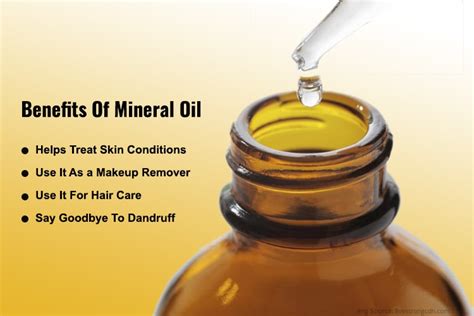Mineral oil is a common ingredient in hair care products, but is it really good for your hair? Here’s a closer look at the benefits and risks of using mineral oil on your hair.

What is Mineral Oil?
Mineral oil is a colorless, odorless, and tasteless hydrocarbon oil that is derived from petroleum. It is a common ingredient in hair care products, such as hair oils, hair sprays, and hair conditioners. Mineral oil is used to help moisturize and protect the hair shaft.
Benefits of Mineral Oil for Hair
Mineral oil can provide several benefits for hair, including:
- Moisturizes the hair: Mineral oil is a good moisturizer for hair. It can help to keep the hair hydrated and prevent it from becoming dry and brittle.
- Protects the hair shaft: Mineral oil can help to protect the hair shaft from damage. It can help to seal in moisture and prevent the hair from becoming damaged by heat styling, UV radiation, and other environmental factors.
- Makes the hair appear smoother and shinier: Mineral oil can help to make the hair appear smoother and shinier. It can help to reduce frizz and tangles, and it can give the hair a healthy-looking glow.
- Prevents hair loss: Mineral oil can help to prevent hair loss. It can help to strengthen the hair shaft and prevent it from breaking.
- Treats scalp conditions: Mineral oil can help to treat scalp conditions, such as dandruff and psoriasis. It can help to soothe the scalp and reduce inflammation.
Risks of Mineral Oil for Hair
While mineral oil can provide several benefits for hair, there are also some risks associated with its use. These risks include:
- Can clog the hair follicles: Mineral oil can clog the hair follicles and prevent the hair from growing. This can lead to hair loss and thinning.
- Can cause scalp irritation: Mineral oil can cause scalp irritation, such as redness, itching, and flaking.
- Can weigh down the hair: Mineral oil can weigh down the hair and make it appear greasy.
How to Use Mineral Oil for Hair
If you want to use mineral oil on your hair, there are a few things you should keep in mind. First, mineral oil should not be used on wet hair. It is best to apply mineral oil to dry hair, as it will be more easily absorbed. Second, mineral oil should be applied sparingly. A small amount of mineral oil will go a long way. Third, mineral oil should be applied to the ends of the hair, not the roots. This will help to prevent the hair from becoming greasy.
Conclusion
Mineral oil can provide several benefits for hair, but there are also some risks associated with its use. If you are considering using mineral oil on your hair, it is important to weigh the benefits and risks before making a decision.
